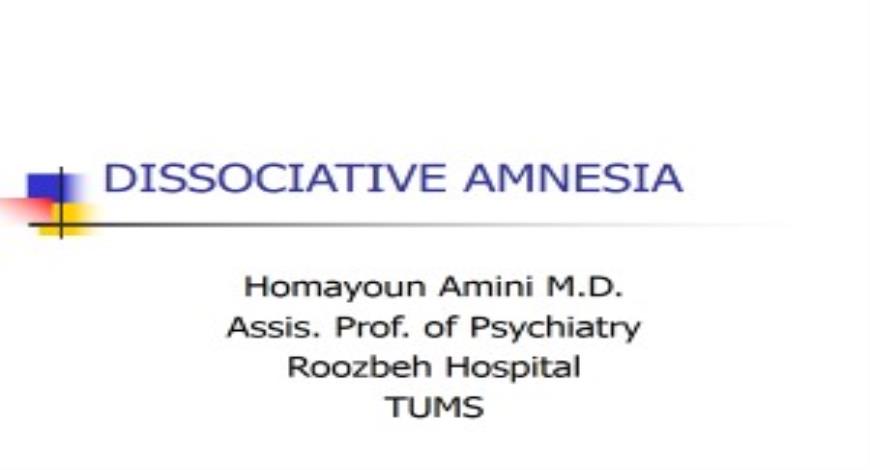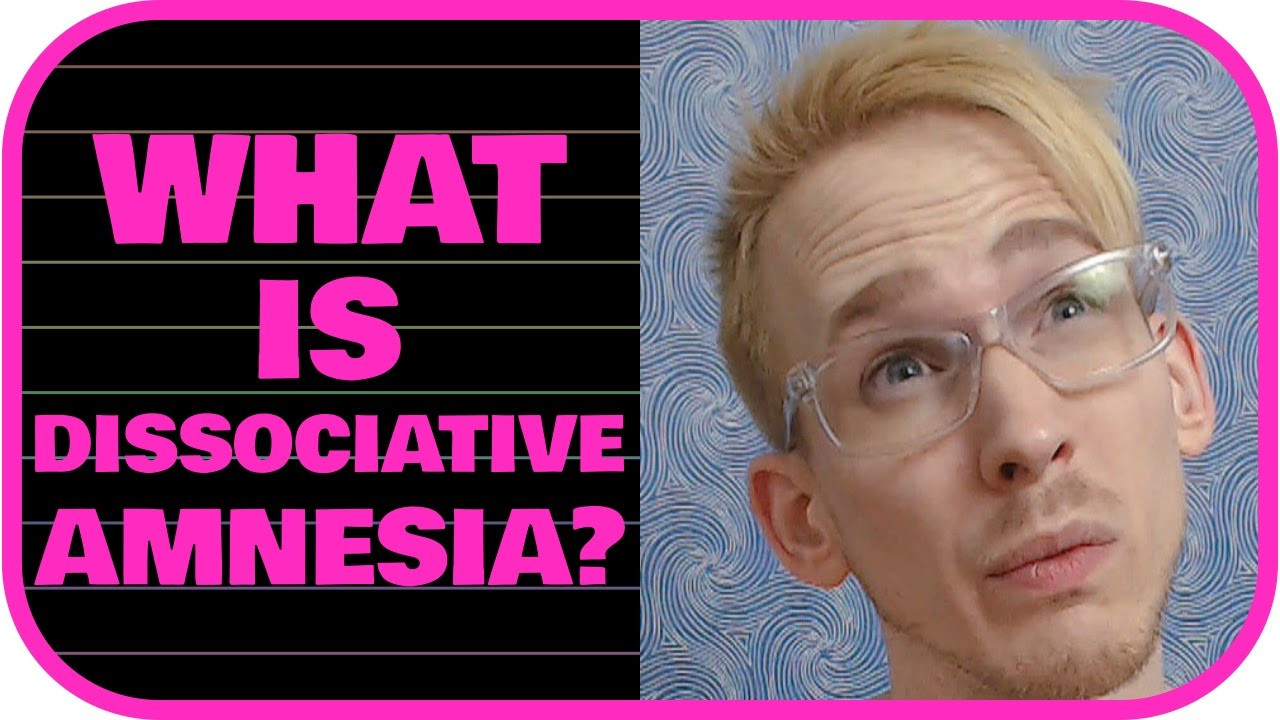

In the sensorimotor organization of traumatic memories, sensations are fragmented into different sensory components. Not being able to integrate traumatic memories seems to be the main element which leads to PTSD. Dissociation refers to memories being stored as fragments and not as unitary wholes. Global memory impairment makes it difficult for these subjects to construct an accurate account of their present and past history. The younger the subject and the longer the traumatic event is, the greater the chance of significant amnesia. Traumatic amnesia involves the loss of remembering traumatic experiences. Bessel van der Kolk divided these functional disturbances into four sets: traumatic amnesia, global memory impairment, dissociative processes and traumatic memories' sensorimotor organization. Traumas can interfere with several memory functions. It has also been proposed that glucocorticoids can impair memory retrieval rats and human males have been shown to be affected by this mechanism. Researchers have found that emotional memories can be suppressed in non-mentally ill individuals via the prefrontal cortex in two stages - an initial suppression of the sensory aspects of the memory, followed by a suppression of the emotional aspect. Additionally, the hippocampal region is known to be linked to recognizing faces. Functional imaging of normal patients reveal that right-hemisperic amygdala and ventral prefrontal regions are activated when they were retrieving autobiographical information and events. These stored episodic and semantic memories can be obtained by triggering the uncinate fascicle that interconnects the regions of the temporofrontal junction area.Įmotion seems to play an important role in memory processing in structures like the cingulated gyrus, the septal nuclei, and the amygdala that is primarily involved in emotional memories. The majority of consolidated information gets stored in the cerebral cortical networks where the limbic system record episodic-autobiographical events. According to the type of information being processed in a given instance, the duration of consolidating stage varies drastically. During encoding, the limbic system is responsible for "bottlenecking" or filtering information obtained from the PNS. Information obtained from the peripheral nervous system (PNS) is processed in four stages - encoding, consolidating, storage, and retrieval. Sensory memory lasts up to hundreds of milliseconds short-term memory lasts from seconds to minutes while anything else longer than short-term memory is considered to be a long-term memory. There are three types of memory – sensory, short-term, and long-term memory. Memory and the brain Main article: Memory Overview Situation-specific amnesia occurs as a result of a severely stressful event, as in post-traumatic stress disorder, child sex abuse, military combat or witnessing a family member's murder or suicide, and is somewhat common in cases of severe and/or repeated trauma. Other times, there may be a loss of basic semantic knowledge and procedural skills such as reading and writing. In most cases, patients lose their autobiographical memory and personal identity even though they are able to learn new information and perform everyday functions normally.

Fugue state is very rare, and usually resolves over time, often helped by therapy. Global amnesia, also known as fugue state, refers to a sudden loss of personal identity that lasts a few hours to days, and is typically preceded by severe stress and/or depressed mood. There are two types of psychogenic amnesia, global and situation-specific. Dissociative amnesia is due to psychological rather than physiological causes and can sometimes be helped by therapy. Psychogenic amnesia is defined by (a) the presence of retrograde amnesia (the inability to retrieve stored memories leading up to the onset of amnesia), and (b) an absence of anterograde amnesia (the inability to form new long term memories). Psychogenic amnesia, also known as functional amnesia or dissociative amnesia, is a memory disorder characterized by extreme memory loss that is caused by extensive psychological stress and that cannot be attributed to a known neurobiological cause. Psychogenic amnesia/functional amnesia/dissociative amnesia This banner appears on articles that are weak and whose contents should be approached with academic caution. Please help recruit one, or improve this page yourself if you are qualified. This article is in need of attention from a psychologist/academic expert on the subject.


 0 kommentar(er)
0 kommentar(er)
